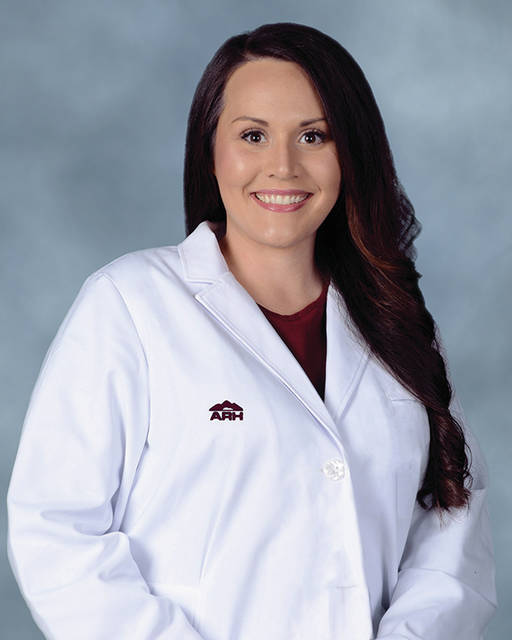Colorectal Cancer Awareness Month
Published 4:47 pm Tuesday, March 27, 2018

Dr. Amber Peace
The Centers for Disease Control and Prevention (CDC) states that among cancers that affect both men and women, colorectal cancer (cancer of the colon or rectum) is the second leading cause of cancer deaths in the United States. Every year, about 140,000 Americans are diagnosed with colorectal cancer, and more than 50,000 people die from it. However, this disease is highly preventable if you start getting screened at age 50.
Screening tests help prevent colorectal cancer by finding precancerous polyps (abnormal growths) which can be removed by a general surgeon. “If you’re 50 or older, it’s important to get screened for colorectal cancer regularly,” said ARH General Surgeon Amber Peace, D.O. “When colorectal cancer is caught early, treatment can be most effective.”
There are several screening test options. Talk with your healthcare provider to determine which is right for you.
• Colonoscopy: an exam used to detect changes or abnormalities in the large intestine (colon) and rectum. (every 10 years)
• High-sensitivity guaiac fecal occult blood test (FOBT) or fecal immunochemical test (FIT): Stool specimens are collected by patients in their home. (every year)
• Sigmoidoscopy: a diagnostic test to check the lower part of your colon or large intestine (the sigmoid colon). This part of your colon is close to your rectum and anus. (every 10 years, with FOBT or FIT every three years)
• Sigmoidoscopy alone (every five years).
• Stool DNA test (FIT-DNA): a noninvasive laboratory test that identifies DNA changes in the cells of a stool sample. The stool DNA test is a new method to screen for colon cancer. (every one or three years)
According to the CDC, research is underway to find out if changes to your diet can reduce your colorectal cancer risk. Medical experts often recommend a diet low in animal fats and high in fruits, vegetables and whole grains to reduce the risk of other chronic diseases such as coronary artery disease and diabetes. This diet also may reduce the risk of colorectal cancer. Also, researchers are examining the role of certain medicines and supplements in preventing colorectal cancer.
“Though researchers are not sure what causes colorectal cancer, certain factors like smoking, excess weight and alcoholic drinks may affect your risk,” stated Peace. “Also keep in mind if a parent, grandparent or other close relative has had colorectal cancer, your risk increases significantly.”
Some studies suggest that people may reduce their risk of developing colorectal cancer by increasing physical activity, limiting alcohol consumption and avoiding tobacco.
Overall, the most effective way to reduce your risk of colorectal cancer is by having regular colorectal cancer screening tests beginning at age 50. Talk to your healthcare provider about screening options and take charge of your health. To find an ARH physician, go to www.arh.org or call your local ARH hospital.
FACTS ABOUT COLORECTAL CANCER
Risk for colorectal cancer increases with age. More than 90 people of colorectal cancers occur in people aged 50 and older.
Precancerous polyps and colorectal cancer don’t always cause symptoms, especially at first. You could have polyps or colorectal cancer and not know it. That is why having a screening test is so important. If you do have symptoms, they may include:
• Blood in or on the stool (bowel movement).
• Stomach pain, aches, or cramps that do not go away.
• Losing weight and you don’t know why.
However, these symptoms may be caused by something other than cancer. If you have any of them, see your doctor.
Some people are at a higher risk than others for developing colorectal cancer. If you think you may be at increased risk, talk to your doctor about when to begin screening, which test is right for you and how often to get tested.



